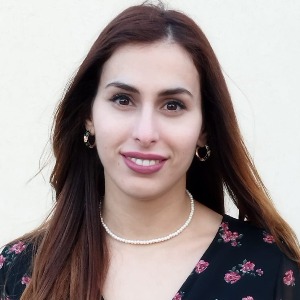Title : A longitudinal study of attachment, illness representations, and trust in physician as recovery promoters following Hip Fracture surgery in older adults
Abstract:
Background: Hip Fractures (HF) are among the most common and debilitating injuries in the elderly population, often resulting in long-term disability, loss of independence, and psychological distress. While most studies in orthopedics have focused primarily on physical recovery markers such as pain levels, mobility, and mortality, limited attention has been paid to psychosocial and emotional factors that may play a key role in shaping the recovery process. There is a growing recognition of the need for a more holistic and patient-centered approach that incorporates emotional resilience, cognitive perceptions of illness, and the quality of relationships with healthcare providers. This study is grounded in two psychological frameworks: Attachment Theory, which explains how individuals regulate stress and form expectations of support in relationships, and the Self-Regulation Model (SRM), which emphasizes the role of cognitive and emotional illness representations in shaping health behaviors and outcomes. Integrating these models into orthopedic research provides a novel understanding of how older adults cope with the challenges of surgical recovery.
Objective: This study aims to investigate the contribution of psychosocial variables- including attachment patterns, illness representations, perceived social support, and trust in the physician-patient relationship—to both physical and emotional recovery following hip fracture surgery. We hypothesize that more secure attachment styles and positive illness representations will be associated with better recovery outcomes. Furthermore, we propose that trust in the physician will moderate the relationship between attachment patterns and recovery: the association will be weaker at higher levels of trust, buffering the effects of insecure attachment.
Methods: The study employs a prospective, longitudinal, quantitative design with data collection at three key time points: (1) pre-surgery, (2) 2–5 days post-surgery, and (3) six weeks post-discharge. These intervals were selected to capture the progression from acute medical intervention to early rehabilitation. The study includes 100 cognitively intact, Hebrew-speaking patients aged 65 and older, undergoing surgery for proximal hip fracture at a large tertiary hospital. Exclusion criteria include pathological fractures, midshaft and distal femoral fractures. Validated self-report questionnaires and medical records are used to assess emotional distress, attachment patterns, illness perceptions, functional status, and trust in healthcare providers.
Current Status: Data collection began in November 2024 and is ongoing. As of April 2025, 52 participants have completed all three waves of data collection. The current sample has a mean age of 81. Descriptive trends suggest high variability in recovery patterns, underscoring the relevance of individual psychosocial differences.
Expected Contribution: This study offers an integrative theoretical model grounded in Attachment Theory and the Self-Regulation Model, while extending the framework to include patient-physician trust and social support. It highlights the significance of combining objective physical outcomes with subjective emotional and cognitive indicators. Findings are expected to guide the development of tailored interventions for elderly patients recovering from HF surgery. Ultimately, this approach may enhance patient engagement, reduce hospital stays, improve adherence to medical recommendations, and inform multidisciplinary practices in geriatric orthopedic care.



